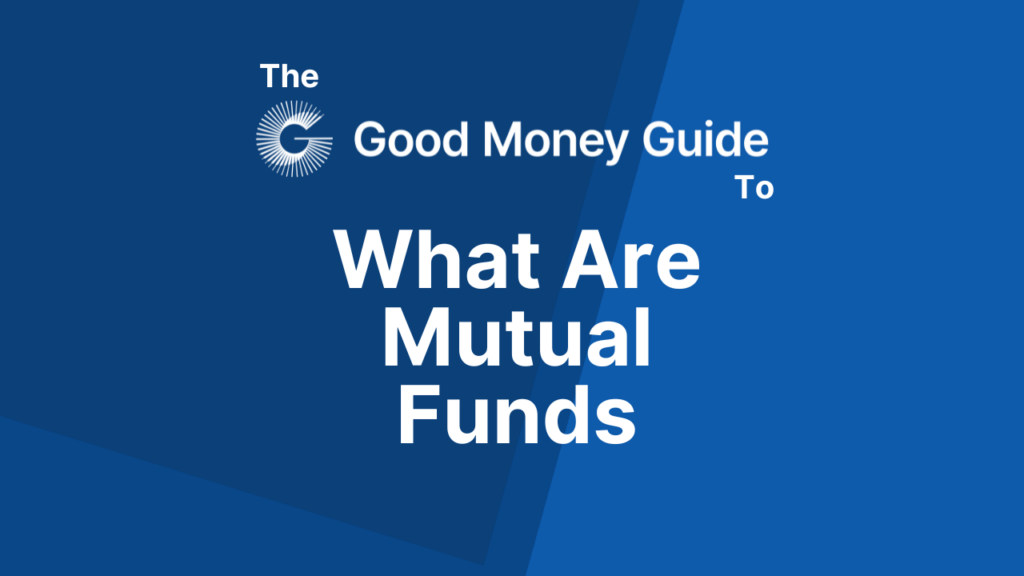If you’re looking for an easy way to invest your money, you might want to consider mutual funds. These are investment products that are designed to simplify the process of investing in asset classes such as stocks, bonds, and commodities.
In this article, we are going to cover the basics of mutual funds. Here’s a look at what they are, how they work, their pros and cons, and how to invest in them.
How do mutual funds work?
Sometimes called investment funds, mutual funds are investment products that provide diversified exposure to different asset classes.
With these products, investors’ money is pooled together to form a larger amount of capital for investment. This capital is then managed by a professional fund manager or fund management firm, who will decide on what investments to buy for the fund.
When you invest in a mutual fund, you receive shares in it. The value of these shares will fluctuate depending on the performance of the investments in the fund.
There are two main ways you can profit from a mutual fund:
- Capital appreciation – if the investments in a fund increase in value, so will the value of the fund’s shares.
- Income – some funds pay income distributions to investors.
Types of mutual funds
Today, there are many different types of mutual funds available to investors including:
- Equity funds – these invest in stocks such as Apple, Microsoft, and Amazon.
- Bond funds – these invest in fixed-income securities such as government bonds and high-yield bonds.
- Multi-asset funds – these invest in several different asset classes to lower overall risk for investors.
- Commodity funds – these invest in commodities such as gold, oil, and copper.
- Money market funds – these are low-risk products that invest in short-term fixed income securities.
- Sector funds – these focus on individual sectors such as Technology, Financials, and Healthcare.
- Index funds – these simply aim to track an index such as the S&P 500 or the Nasdaq 100.
Example of a mutual fund
A good example of a mutual fund is the Fidelity Magellan Fund. Launched in 1963, this fund has assets under management of around $30 billion today. Its aim is to generate long-term capital growth for investors by investing in large-cap US stocks.
Mutual funds and taxation
In the US, there are two ways you can be taxed on mutual funds:
- Capital gains – if you sell your mutual fund shares for a gain, you will likely have to pay tax on the gain.
- Income – distributions from mutual funds are generally considered as taxable income.
It’s worth pointing out that mutual funds can be held in a tax-efficient account such as an Individual Retirement Account (IRA). Holding them in this kind of account can reduce your tax liabilities.
Pros & cons of mutual funds
Like all investment products, mutual funds have both pros and cons.
Pros include:
- Diversification – through one investment you can potentially get exposure to hundreds, or even thousands, of securities.
- Cost-efficiency – mutual funds are generally a cost-efficient way to invest your money.
- Professional expertise – with mutual funds, you benefit from the expertise of a professional fund manager.
- Low hassle – with these investment products, you don’t have to worry about picking individual stocks yourself.
Cons include:
- Less control – with mutual funds you don’t have direct control over your investments.
- Fees – over time mutual fund fees can eat into your returns.
- No guarantee of good performance – professional fund managers don’t always beat the market.
- Lack of transparency – funds often do not disclose their full holdings.
Mutual fund costs and fees
With mutual funds, there are several costs to be aware of. These include:
- Expense ratios – these are annual fees that cover a fund’s operating expenses, including management fees, administrative costs, and marketing expenses.
- Load fees – these are fees that some funds charge upfront to investors.
- Redemption fees – some funds charge these fees when you withdraw your money.
- Platform charges – if you make an investment in a mutual fund through a broker or platform, it’s likely that you will have to pay annual charges.
Are mutual funds risky?
All investments carry some form of risk. However, with mutual funds, risk levels vary.
Two main types of risk to be aware of with these funds are:
- Asset class risk – funds that invest in riskier asset classes such as stocks and commodities are likely to be higher risk than funds that invest in lower-risk asset classes such as bonds.
- Portfolio manager risk – portfolio managers can experience periods of underperformance. This can have a negative impact on mutual fund returns.
Getting started with mutual funds
Getting started with mutual funds is quite easy. Here’s how to do it in four easy steps:
- Step 1. Decide on the asset class you want to invest in. This will depend on your goals and risk tolerance.
- Step 2. Decide on the fund you want to invest in. Here, it can help to look at different funds’ long-term performance track records.
- Step 3. Decide on the investment platform or investment fund company you wish to use. You can find reviews of different platforms here at Good Money Guide.
- Step 4. Open an account and invest your money in your fund of choice.
FAQs
Can I sell a mutual fund at any time? You can sell a mutual fund at any time. However, bear in mind that mutual fund redemptions only take place at the end of the trading day. It can also take a few days to get your capital back.
What are the main types of mutual funds? The main types of mutual funds are equity funds, fixed income funds, balanced funds, index funds, and money market funds.
Are mutual funds considered a good investment? Mutual funds are generally considered to be good investments. That’s because they provide diversified exposure to different asset classes at a relatively low cost. However, it’s important to do your research before investing in a fund. Some have better track records than others.
Which type of mutual fund is the safest? Money market funds are generally the safest type of mutual fund. These are low-risk products that invest in short-term bonds.


